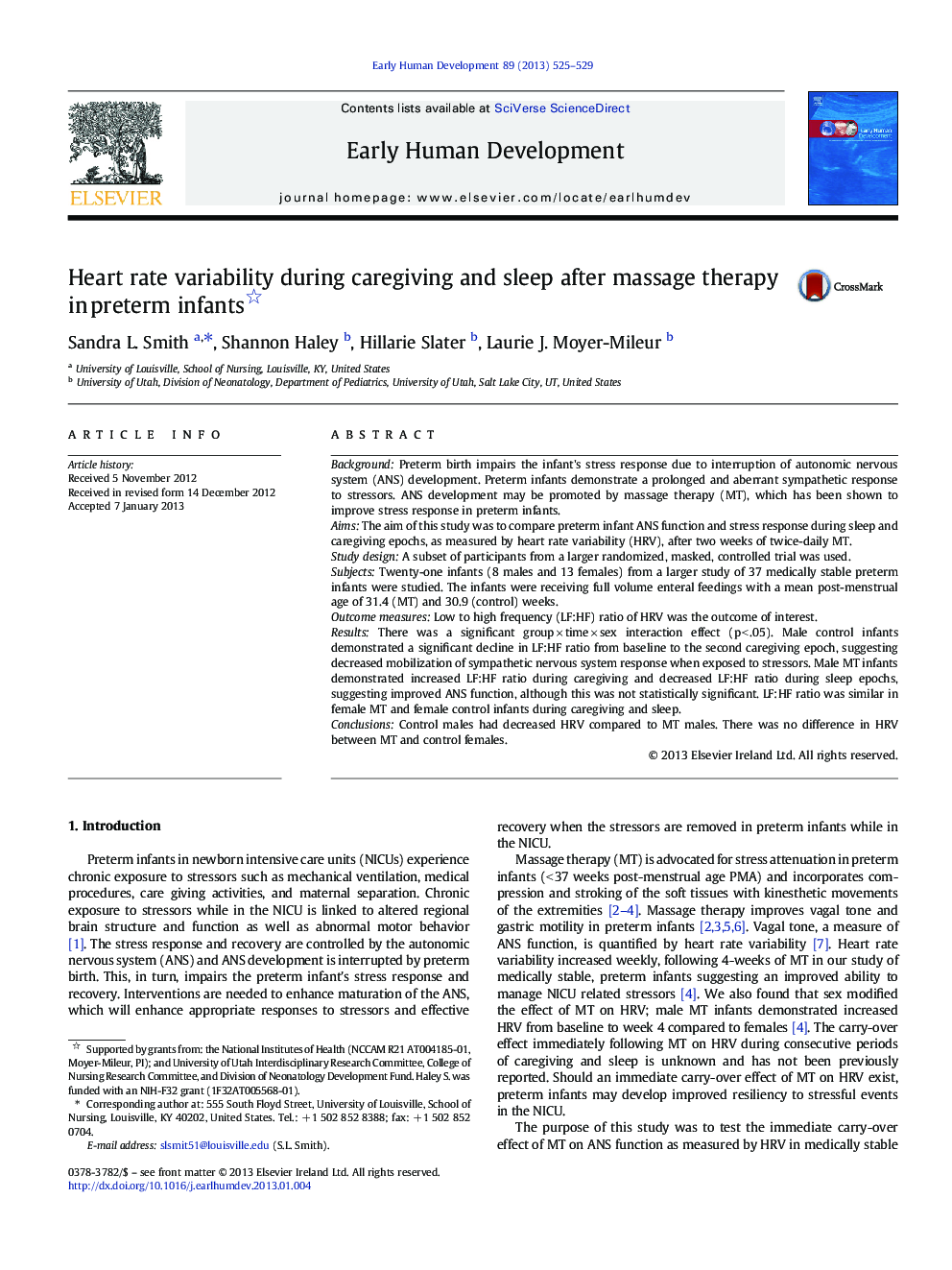| Article ID | Journal | Published Year | Pages | File Type |
|---|---|---|---|---|
| 6171872 | Early Human Development | 2013 | 5 Pages |
BackgroundPreterm birth impairs the infant's stress response due to interruption of autonomic nervous system (ANS) development. Preterm infants demonstrate a prolonged and aberrant sympathetic response to stressors. ANS development may be promoted by massage therapy (MT), which has been shown to improve stress response in preterm infants.AimsThe aim of this study was to compare preterm infant ANS function and stress response during sleep and caregiving epochs, as measured by heart rate variability (HRV), after two weeks of twice-daily MT.Study designA subset of participants from a larger randomized, masked, controlled trial was used.SubjectsTwenty-one infants (8 males and 13 females) from a larger study of 37 medically stable preterm infants were studied. The infants were receiving full volume enteral feedings with a mean post-menstrual age of 31.4 (MT) and 30.9 (control) weeks.Outcome measuresLow to high frequency (LF:HF) ratio of HRV was the outcome of interest.ResultsThere was a significant group Ã time Ã sex interaction effect (p < .05). Male control infants demonstrated a significant decline in LF:HF ratio from baseline to the second caregiving epoch, suggesting decreased mobilization of sympathetic nervous system response when exposed to stressors. Male MT infants demonstrated increased LF:HF ratio during caregiving and decreased LF:HF ratio during sleep epochs, suggesting improved ANS function, although this was not statistically significant. LF:HF ratio was similar in female MT and female control infants during caregiving and sleep.ConclusionsControl males had decreased HRV compared to MT males. There was no difference in HRV between MT and control females.
